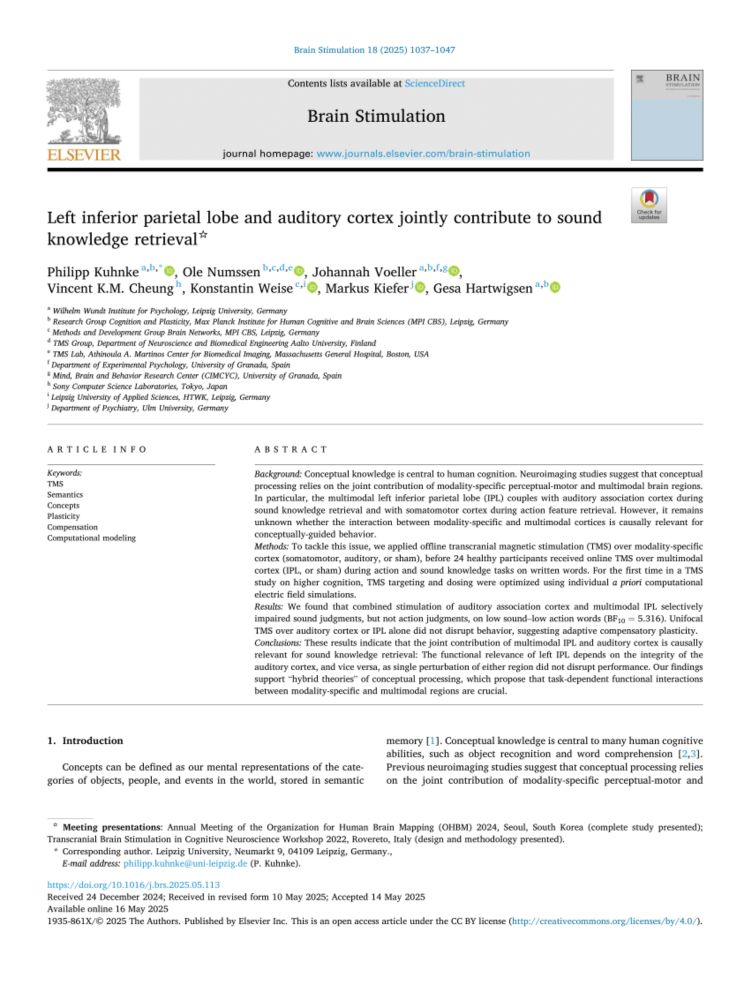

⚡ Specialization
▸ IFG = semantic (and executive) control
▸ pre-SMA = executive functions
🔄 Compensation between both regions during single-site disruption!
Read more: shorturl.at/UVtRk

⚡ Specialization
▸ IFG = semantic (and executive) control
▸ pre-SMA = executive functions
🔄 Compensation between both regions during single-site disruption!
Read more: shorturl.at/UVtRk

⚡ Specialization
▸ IFG = semantic (and executive) control
▸ pre-SMA = executive functions
🔄 Compensation between both regions during single-site disruption!
Read more: shorturl.at/UVtRk
Preprint can be found here: arxiv.org/pdf/2502.01597
Co-authors:
@redhenlab.bsky.social @copla.bsky.social @tiagotorrent.com @viridiano.com @fredbelcavello.bsky.social
Preprint can be found here: arxiv.org/pdf/2502.01597
Co-authors:
@redhenlab.bsky.social @copla.bsky.social @tiagotorrent.com @viridiano.com @fredbelcavello.bsky.social










